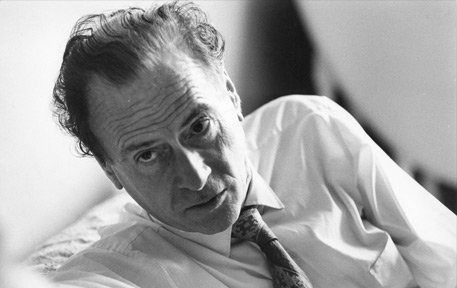The McGill Institute for the Study of Canada (MISC) invited Jonathan Slater, a professor of public relations at State University of New York Plattsburgh (SUNY) on Oct. 14 to give a lecture exploring the influence of Canadian philosopher Marshall McLuhan on the role of mass media in Quebec’s Quiet Revolution and the October Crisis. The webinar was part of a formal partnership between McGill University, Bridgewater State University, and SUNY Plattsburgh.
Slater’s talk drew on research for his upcoming book on the role of mass media in Quebec’s Quiet Revolution, a period of socio-cultural change in the province. The October Crisis culminated in the Front de libération du Quebec’s (FLQ) kidnappings and attacks of two diplomats in the fall of 1970.
Slater lectured about Canadian philosopher and professor of literature Marshall McLuhan (1911-1980), who is often heralded as the father of communication and media studies. During the Quiet Revolution and October Crisis in Quebec, McLuhan observed and commented on the cultural changes in Quebec from his home in Toronto, where he was director of the Centre for Culture and Technology. In her introduction of Slater, Blair Elliot, MISC Communications and Events Associate, highlighted how some of McLuhan’s contemporaries saw his role in the crisis.
“Two of McLuhan’s contemporaries, his Toronto colleague Northrop Frye and Montreal author Hugh MacLennan, accused McLuhan of stirring up trouble in Quebec,” Elliot said. “McLuhan’s open friendship with Prime Minister Pierre Trudeau ostensibly was behind Frye’s assertion that McLuhan was interfering in Quebec’s affairs. MacLennan believed McLuhan’s contentions about mediated environments were abetting French nationalist sentiment in the province.”
Following World War II, Quebec rapidly industrialized and many rural francophones migrated towards Montreal’s urban center. Despite a growing intellectual class, Quebec francophones were prevented from seeing the full benefits of economic development due to English language requirements while at work.
“The Quiet Revolution of 1960 reversed years of stagnation,” Slater said. “French Canadians, by and large tolerated their subordinate relationship [to anglophones] and accommodated their own oppression. The chasm separating French and English in Quebec, therefore, emerges as a drama of colonization and defeat.”
Slater described how McLuhan was in tune with the political climate and the impact of new media. Prime Minister Lester B. Pearson launched the Royal Commission on Bilingualism and Biculturalism in 1963 to address growing tensions between French Canada and English Canadians.
“In that same year, Marshall McLuhan sent [a paper] to the Royal Commission drawing attention to the extent to which [English and French Canadians] already appeared to be polarized,” Slater said. “He also reflected on the way the fairly new electronic medium of television would further abet the deterioration of relations between them.”
McLuhan’s observations on the role of media proved to be popular in the aftermath of the Quiet Revolution. Slater describes how McLuhan’s translator, Jean Paré, reflected on McLuhan in hindsight.
“There was a commonly held belief in the decade following the Quiet Revolution that television permitted Quebec francophones to take stock of their majority standing in their own province and appreciate their role as a distinct people within Canada as a whole,” Slater said. “[They were] not merely an ethnic minority stuck in a one-down position in greater English speaking Canada.”
McLuhan’s insights into the period were not only related to media studies. Daniel Béland, Director of MISC and host of the event’s Q&A session, discussed the relevance of Marshall McLuhan’s observations to wider discussions about nationalism.
“McLuhan influenced the study of nationalism in a big way,” Béland said. “Benedict Anderson [an influential Irish political scientist], for example, who wrote Imagined Communities, based his work largely on McLuhan’s insight.”
For those interested and who were unable to attend, the full lecture and Q&A will be available on the MISC McGill Youtube channel next week.









